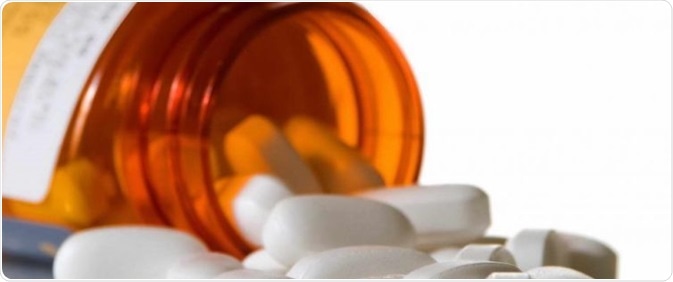
Image Credit: Jordi Labs
Pharmaceuticals are developed, designed, and commonly manufactured in laboratory settings. Laboratory testing is an essential need in almost every stage of pharmaceutical production and R&D, from the inspection of incoming raw materials to dosage-form quality control (QC).
Along with analyzing the actual product and its ingredients, pharmaceutical laboratory testing is frequently performed to identify manufacturing problems that could present harm to human health.
This article from Jordi Labs examines the most common types of pharmaceutical laboratory testing, from manufacturing quality assurance (QA) to the inspection of bioactive pharmaceutical ingredients (APIs).
Pharmaceutical lab testing of APIs
After being introduced into the body, drugs produce a pharmacological effect as a result of the unique mechanism of action of the product’s biologically active components. Tablets and pills are sometimes known by their API.
For example, the bioactive constituent of aspirin is acetylsalicylic acid, which is widely known as aspirin. However, patients can find it difficult to identify the API in their medication as drugs are more commonly marketed with brand names.
Analyzing incoming APIs in a pharmaceutical laboratory is crucial for complying with international regulatory requirements in the healthcare and pharma industries. The techniques for analyzing these components vary significantly, given the broad range of physical and chemical forms that APIs can take.
High-resolution mass spectrometry and gas and liquid chromatography techniques are among the most important methods for API impurity/purity and toxicology screening.
Pharmaceutical lab testing of excipients
Excipient materials are usually manufactured alongside APIs to increase thermodynamic stability, extend shelf-lives, control drug release rates, and control pharmacokinetics.
The absorption abilities of dosage form pharmaceuticals can establish the rate at which they travel from dissolution in vivo into the bloodstream, where they begin to exhibit pharmacological effects.
While technically inactive, excipients play an essential role in dosage-form pharmaceuticals, frequently making up the majority of the end product. Pharmaceutical laboratory testing is performed to evaluate how excipients influence the process of assimilation in APIs to enhance recipes for preferred therapeutic effects.
Certain excipients can be included to slow dissolution for drugs where a fast release could harm delicate tissues and produce internal irritation. Others are designed to provide efficient relief from symptoms by disintegrating quickly.
GPC is frequently employed to analyze polymeric excipients as the rate of drug release is often directly related to the molecular weight of the polymer. When it comes to excipient laboratory testing, the broad selection of freely available excipients (polymeric and small molecule) demands a flexible mindset.
Pharmaceutical lab testing of contact materials
The dosage form products and raw materials must be tested separately and together to ensure significant equivalence in new drug development research or to guarantee batch-to-batch consistency.
Further quality assurance and control must be performed on packaging materials and finished goods to guarantee that residues, particulates, leachables, and extractables that can contaminate products are eliminated from market circulation.
Tablet impurity characterization
Fourier-transform infrared spectroscopy microscopy (FTIR) with energy-dispersive X-ray spectroscopy scanning electron microscopy (SEM-EDS) are two of the main techniques for the identification of contaminants in pharmaceutical tablets.
These techniques offer information on chemical composition for both inorganic and organic impurities and help to rectify issues such as particulate identification or tablet discoloration.
Jordi Labs recently discussed the importance of characterizing particulates and residue in pharmaceuticals in further detail.
Pharmaceutical lab testing with Jordi Labs
Pharmaceutical laboratory testing is one of Jordi Labs’ core abilities. The company offers expertise in the field of mass spectrometry, E&L testing, and GPC, providing analytical support for any investigational new drugs (INDs) and helping to optimize the QC of existing manufacturing procedures.
To discover more about Jordi Labs’ experience in pharmaceutical laboratory testing, please contact a member of the team directly.
About Jordi Labs
Jordi Labs provides the highest quality contract analytical services and polymer HPLC columns to some of the world’s leading consumer products, polymers, pharmaceutical and medical device manufacturers. Our team of PhD analytical chemists specialize in chemical identification. One of core competencies is Extractables & Leachables testing.
We are also worldwide leaders in;
- Particulates & residue analysis
- Good-bad comparisons
- Method development/validation
- Polymer analysis
- Polymer failure
We also help companies from Fortune 500s to innovative startups with method development, preparative HPLC, training seminars, depositions and consulting. As a family company, we take pride in the production of all of our products and analytical service offerings. It is our goal to help our customers overcome their analytical challenges by providing excellent products and personal assistance from our highly-trained staff of PhD chemists
Sponsored Content Policy: News-Medical.net publishes articles and related content that may be derived from sources where we have existing commercial relationships, provided such content adds value to the core editorial ethos of News-Medical.Net which is to educate and inform site visitors interested in medical research, science, medical devices and treatments.